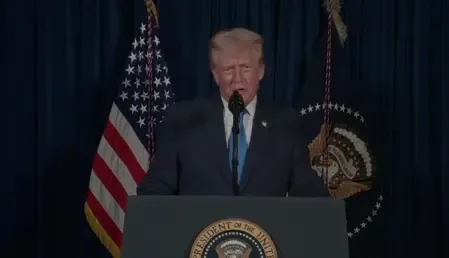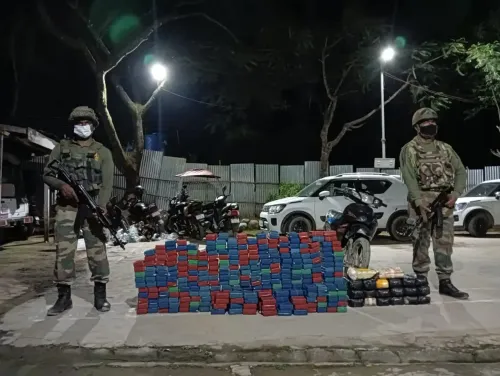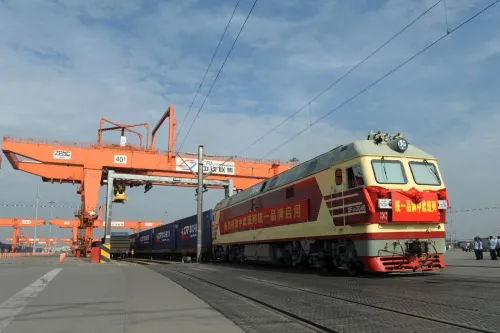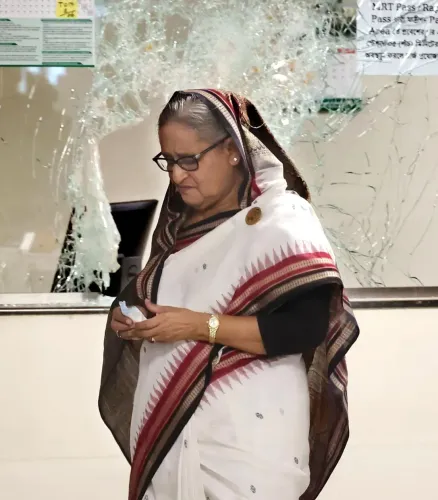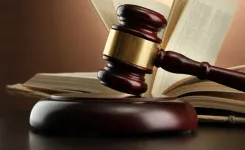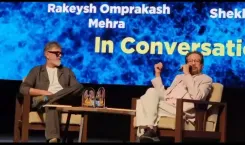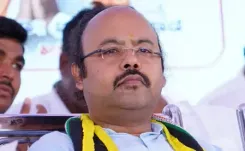South Korea's Yoon Refutes Allegations of Martial Law Troops Ordering
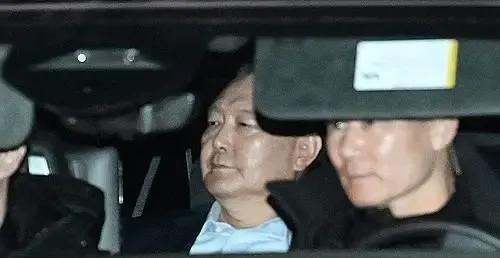
Synopsis
Key Takeaways
- Yoon Suk Yeol denied ordering troops to remove lawmakers.
- He clarified his martial law declaration was to ensure election integrity.
- Yoon is the first president to attend their own impeachment trial.
- The Constitutional Court has 180 days to decide on his impeachment.
- If ousted, a snap election must occur within 60 days.
Seoul, Jan 21 (NationPress) South Korean President Yoon Suk Yeol on Tuesday refuted claims that he instructed military personnel to forcefully remove lawmakers from the National Assembly following his martial law declaration last month, marking his initial appearance at the Constitutional Court for his impeachment trial.
During the proceedings, acting court President Moon Hyung-bae inquired if he had commanded military leaders to prevent lawmakers from voting against his December 3 martial law decree.
"No," he responded. "(A parliamentary vote) cannot be obstructed through hindrance or delay."
The president rejected allegations that he had sent a note to Finance Minister Choi Sang-mok on the day martial law was implemented, requesting a budget for an 'emergency legislative body.'
He also aimed to clarify assertions that electoral fraud was a significant factor in his martial law declaration, stating he merely ordered a review of the National Election Commission's computer servers amid concerns about election integrity.
Yoon was escorted to the court by the Presidential Security Service from the Seoul Detention Center in Uiwang, just south of the capital, where he has been held since last Wednesday.
At 2 p.m., he entered the courtroom, attired in a suit and red tie, awaiting the arrival of the eight justices for the third hearing regarding his impeachment linked to the martial law declaration.
"This is my first appearance today, so I will make my remarks brief," Yoon stated while seated after requesting to speak.
"Since reaching adulthood, I have held a steadfast belief in liberal democracy and have upheld this belief throughout my public service," he continued.
"As the Constitutional Court exists to protect the Constitution, I respectfully ask the justices to consider my case favorably on multiple fronts."
Yoon is the first president to personally attend their impeachment trial, as former Presidents Roh Moo-hyun and Park Geun-hye were absent from theirs.
He was impeached by the National Assembly on December 14 and remains suspended from his duties while an investigation is ongoing regarding accusations that he instigated an insurrection and misused his authority through the martial law declaration, as reported by Yonhap news agency.
The Constitutional Court has a period of 180 days from the date it received the case on December 14 to either uphold the impeachment and remove Yoon from office or dismiss the impeachment and reinstate him.
If Yoon is removed, the country will need to hold a snap presidential election within 60 days.
During the hearing, which lasted 1 hour and 43 minutes, Yoon's legal team contended that he had no intention of enforcing the martial law decree that prohibited all political activities and imposed strict controls on media and publications.
"The decree was formulated by then Defence Minister Kim Yong-hyun and was reviewed and modified by the defendant to ensure a proper appearance of martial law," stated Chah Kee-whahn, one of Yoon's lawyers.
"In essence, the decree aimed to prevent illegal actions by the National Assembly and was not intended to dissolve the Assembly or halt its regular functions," he explained.
Yoon has defended his brief imposition of martial law as a necessary 'act of governance' designed to protect the nation from 'anti-state forces' and to caution the opposition party against misusing its legislative authority.
Chah asserted that the military's presence in the Assembly during the six-hour martial law enforcement was meant to inform the public about the parliament's 'dangerous behavior' and to prepare for a potential influx of protestors.
He categorically rejected allegations that Yoon had ordered the arrest of significant political figures and judges, including then-ruling party leader Han Dong-hoon and Assembly Speaker Woo Won-shik.
Outside the courtroom, hundreds gathered to express their support for the president, holding signs proclaiming 'Impeachment Invalid.'
Police established a perimeter around the court and deployed buses along the sidewalks to prevent any violence among demonstrators.
One woman was taken into custody after assaulting a police officer.
In a neighborhood opposite the court, around 4,000 individuals participated in a conservative rally supporting the president.
This marked Yoon's first public appearance since the day he declared martial law.

